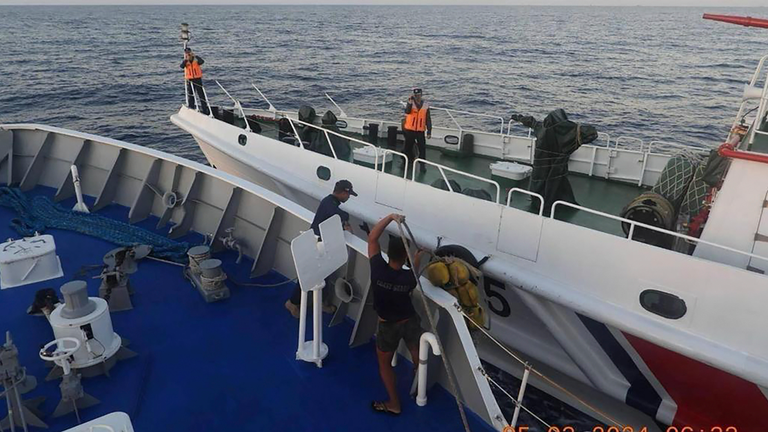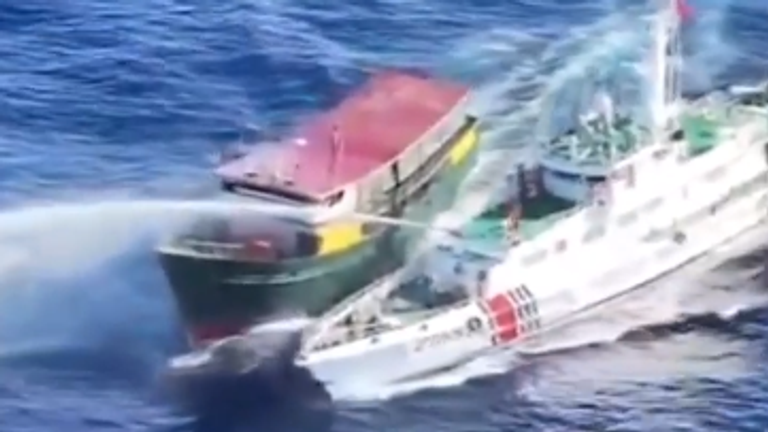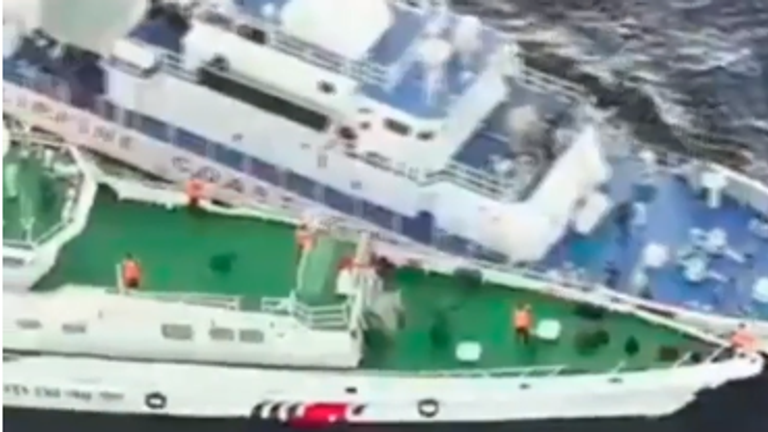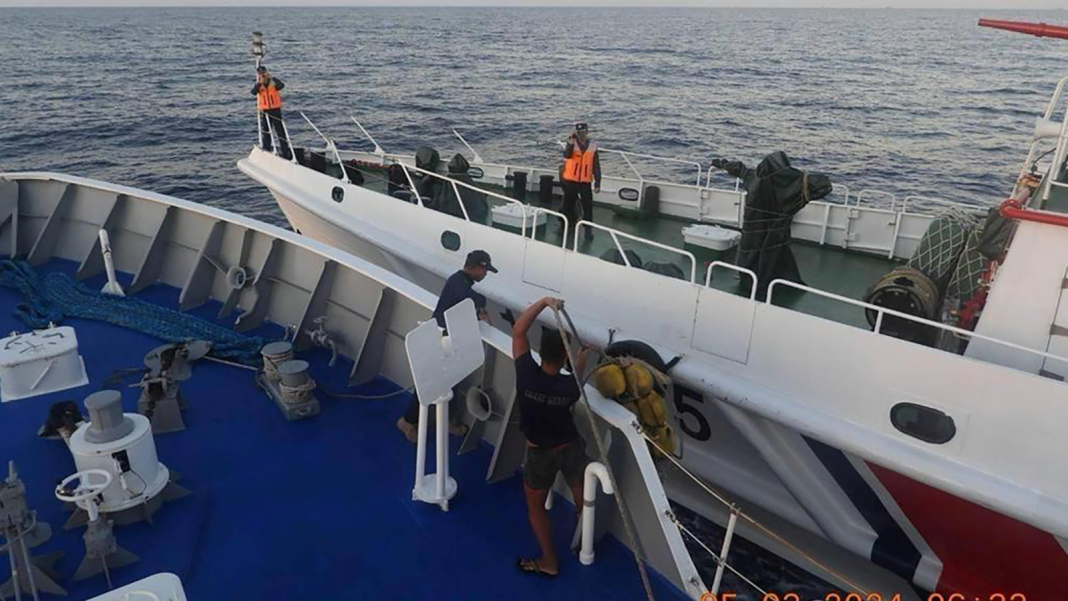Philippine and Chinese coast guards clashed in the disputed South China Sea, as water cannons were deployed.
Four Filipino crewmen were said to have been injured in the confrontation that took place ahead of a summit of Asian leaders, during which Beijing’s aggression at sea was expected to be raised.
According to a Philippine official, dangerous manoeuvres by Chinese ships led to two collisions off the disputed Second Thomas Shoal just after dawn.
This led to minor structural damage of the BRP Sindagan, of the Philippine coast guard.
Then, over an hour later, another Chinese coast guard ship blocked and collided with a supply boat the Philippine coast guard was escorting, according to the officials.
The same supply boat, manned by Filipino navy members, was later hit by Chinese coast guard water cannons. This shattered its windshield and injured at least four people, according to a statement from the Philippine government task force for territorial disputes.
A Chinese vessel as seen from onboard BRP Cabra, a Philippine coast guard ship. Pic: AP
The task force said China’s actions were “another attempt to illegally impede or obstruct a routine resupply and rotation mission”.
They continued: “China’s latest unprovoked acts of coercion and dangerous manoeuvres” against Philippine ships “put the lives of our people at risk and caused actual injury to Filipinos,”.
This content is provided by Datawrapper, which may be using cookies and other technologies.
To show you this content, we need your permission to use cookies.
You can use the buttons below to amend your preferences to enable Datawrapper cookies or to allow those cookies just once.
You can change your settings at any time via the Privacy Options.
Unfortunately we have been unable to verify if you have consented to Datawrapper cookies.
To view this content you can use the button below to allow Datawrapper cookies for this session only.
The Philippines have since summoned China’s deputy chief of mission to Manila to answer for the “aggressive actions” leading to the collision.

The moment the two ships collided in the disputed region in the South China Sea. Pic: AP
The Second Thomas Shoal is a disputed territory, claimed by both China and the Philippines.
But Brunei, Malaysia, Vietnam, and Taiwan also have overlapping claims to the waterway, a major global trade route that is believed to sit atop rich undersea oil and gas deposits.
A small Philippine marine and navy contingent has kept watch onboard a rusted and marooned warship, the BRP Sierra Madre, which has been there since the late 1990s.
China has surrounded the shoal, which lies off the western coast of the Philippines, with coast guard, navy, and other ships to try and stop Filipino efforts to deliver construction materials to fortify the Sierra Madre.
In a statement, Chinese coast guard said “it took control measures in accordance with the law against Philippine ships that illegally intruded into the waters adjacent to Ren’ai Reef,” the name Beijing uses for Second Thomas Shoal.

Chinese coast guard unleashed a water cannon onto Philippine vessels. Pic: PCG
They also accused a Philippine ship of deliberately ramming a Chinese coast guard vessel.
The long-simmering tensions in the South China Sea were expected to be discussed at a summit of leaders of the Association of Southeast Asian Nations, and their Australian counterparts, in Melbourne on Wednesday.
The Philippines, along with Vietnam, planned to voice concerns over China’s increasingly aggressive actions in the disputed waters.
Read more:
US vice president urges Israeli minister to ensure ‘credible’ humanitarian plan
Iran supplying Russia with ballistic missiles shows they are ‘bad influence’ in Europe
China sets growth target of around 5% and announces increases in military spending

The area has long been at the heart of a dispute. Pic: PCG
In confrontations last year, Philippine security officials accused the Chinese coast guard and suspected militia ships of not just blocking their ships, but using water cannons and military-grade lasers that temporarily blinded some crew members.
But the Chinese Embassy in Manila has accused the Philippines of repeated provocations in the South China Sea and defended their actions.
Earlier this year, officials from both countries met in Shanghai and agreed to take steps to lower tensions – but ongoing confrontations continue nonetheless.
The long-running tensions raise fears of the breakout of a conflict that could drag the US in as well. Washington has warned it is obligated to defend the Philippines, its oldest treaty ally in Asia.







